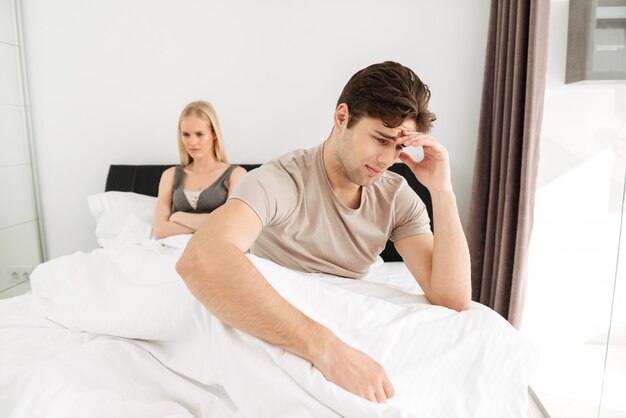
Male menopause, also known as andropause or testosterone deficiency syndrome, is a phase in a man’s life marked by a significant decline in sexual hormones, particularly testosterone. This hormonal drop leads to various physical and mental changes. Understanding the symptoms is crucial to avoid confusing it with other health conditions.
Unlike female menopause, which occurs suddenly, male menopause is a gradual process that typically starts in a man’s 40s or 50s. While it’s a common phenomenon, not all men experience it, and its effects can vary widely among individuals. Testosterone, a key hormone responsible for sex drive and maintaining overall health, begins to decline by about 1% annually after a man’s 30s. By the time andropause occurs, testosterone levels can drop to very low levels, sparking noticeable physical, emotional, and mental effects.
### Symptoms of Male Menopause
As men approach this stage, they often encounter a range of changes, many of which can impact their daily lives and relationships. Key symptoms include:
#### Low Energy Levels
Fatigue and persistent tiredness are common, even with minimal effort. Men may also notice reduced muscle strength, lower bone density, and a general lack of stamina due to declining testosterone levels.
#### Reduced Bone Density
Testosterone plays a vital role in maintaining strong bones. During andropause, reduced levels of this hormone can lead to brittle bones and conditions like osteoporosis, increasing the risk of fractures.
#### Sleep Issues (Insomnia)
Testosterone also affects sleep quality. Low levels can lead to insomnia, difficulties falling asleep, and restlessness in the night. This disrupts the natural sleep cycle, causing drowsiness, mood swings, irritation, and mental fatigue during the day.
#### Increased Abdominal Fat
A link exists between declining testosterone levels and increased belly fat. This hormonal imbalance may also trigger a rise in estrogen, which further exacerbates the problem. These changes affect metabolism and body composition.
#### Physical Changes
Men may notice decreased muscle mass, less body hair, and even tender or swollen breast tissue. These changes can alter their overall physical appearance.
#### Mental Health Effects
Hormonal shifts can impact mental well-being. Symptoms may include depression, a lack of confidence, low self-esteem, memory issues, and trouble concentrating.
#### Sexual Health Problems
Reduced testosterone significantly affects sex drive, often leading to decreased desire, fewer spontaneous erections, erectile dysfunction, and infertility. This can deeply impact intimacy and relationships.
#### Heightened Risk of Severe Health Issues
Low testosterone has been linked to several serious diseases, including osteoporosis, diabetes, heart conditions, arthritis, hypertension, and stroke. Proper diagnosis and treatment can minimize these risks.
—
### Natural Ways to Manage Male Menopause
Although aging and hormone decline are natural processes, certain lifestyle changes and remedies can help manage or even prevent the symptoms of male menopause. These include:
#### 1. **Healthy Diet**
A balanced diet rich in fresh fruits, vegetables, vitamins, minerals, and antioxidants can mitigate hormonal declines. Foods containing healthy fats, like omega-3 or monounsaturated fats, support heart health and blood circulation. Plant-based proteins—such as beans and legumes—can help combat fatigue and low bone density.
#### 2. **Lifestyle Adjustments**
Staying active both mentally and physically can help maintain healthy testosterone levels. Avoid prolonged periods of inactivity, and engage in activities that keep you energized and focused.
#### 3. **Regular Exercise**
Daily workouts can address many symptoms of andropause. Exercise improves energy levels, strengthens muscles, reduces body fat, and boosts libido. It also promotes testosterone production and aids in mental health by releasing endorphins, which combat stress and depression.
#### 4. **Quality Sleep**
Poor sleep contributes to decreased testosterone levels. To improve sleep quality, adopt a consistent bedtime routine and avoid staying up late. Meditation and yoga can also help restore your sleep cycle. If necessary, consult a doctor for sleep-related issues.
#### 5. **Limit Alcohol Consumption**
Drinking alcohol can lower testosterone production and increase estrogen levels, speeding up the onset of male menopause symptoms. Reducing or completely cutting out alcohol will support long-term hormonal health.
#### 6. **Maintain an Active and Healthy Sex Life**
Healthy sexual activity can positively impact mental and physical health. It reduces stress, boosts confidence, and helps balance hormone levels. Addressing any underlying sexual performance issues can prevent further symptom aggravation.
#### 7. **Explore Natural Therapies**
Alternative treatments such as hormone replacement therapy, acupuncture, stress management practices, and homeopathy may alleviate symptoms of male menopause. Consult a health professional when considering these options.
#### 8. **Stress Management**
Chronic stress can negatively affect testosterone levels. Use relaxation techniques like mindfulness, meditation, or engaging hobbies to manage stress effectively. Stress reduction promotes better mental health and supports a stable hormonal balance.
#### 9. **Maintain a Healthy Weight**
Excess fat, particularly around the abdomen, triggers the production of estrogen, further reducing testosterone levels. A combination of healthy eating and regular exercise can help keep body weight in check and support testosterone production.
—
In conclusion, male menopause is a natural part of aging that varies among individuals. By adopting a healthier lifestyle and being proactive about managing your physical and mental health, you can significantly reduce its impact. Prevention is always better than cure, so integrate these strategies into your routine to maintain vitality and well-being.